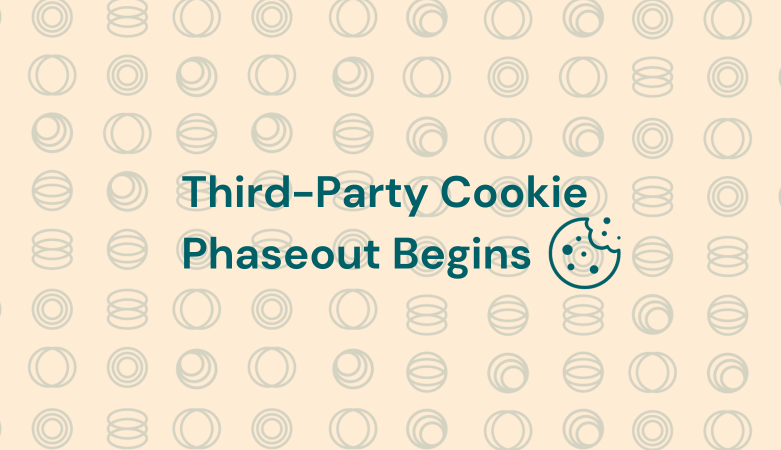What does this change mean for advertisers, and how can Optimal help?
Starting January 4, Google officially began the process of phasing out third-party cookies from Chrome. To kick off this transition, Chrome is now testing Tracking Protection, a new feature that limits cross-site tracking. Google announced that “Chrome is restricting third-party cookies by default for 1% of Chrome users to facilitate testing, and then ramping up to 100% of users from Q3 2024.”
This decision marks a significant shift in the digital advertising landscape, as the third-party cookie has long been a staple for advertisers seeking to track user behavior and deliver targeted ads and has been a fundamental part of the web for nearly three decades. Safari and Firefox have both already blocked third-party cookies by default for years, but many advertisers still aren’t ready.
What does third-party cookie deprecation mean for advertisers?
Advertisers who still rely on third-party cookies to execute and measure targeted advertising campaigns will be quickly left behind their competitors if they don’t have solutions in place to comply with current privacy regulations, and anticipate future moves towards an opt-in internet.
What can advertisers do to prepare?
Luckily, marketers who adopt an audience-first approach and keep customer experience in mind will find that solutions like Unified ID 2.0, data clean rooms, and contextual targeting will help them stay in compliance while also delivering better marketing and advertising experiences for consumers.
At Optimal, we’ve long helped clients prepare for a cookieless future, advocating for more privacy-safe, future-proof solutions. Our forward-thinking approach and cutting-edge technology have allowed us to develop alternative solutions that go beyond the limitations of third-party cookies, ensuring our clients continue to enjoy precise targeting and optimal campaign performance.
We anticipated this change, so we utilize a combination of diverse onboarding technologies, proprietary data, and innovative media solutions that don’t rely on the third-party cookie. To stay ahead of the curve, we work with partners that have either built or seamlessly integrated privacy-compliant identifiers designed to meet current privacy standards and anticipate future updates. For example, as an onboarding best practice, our experts implement Enhanced Conversions, which improves conversion measurement accuracy and unlocks more powerful bidding opportunities. It supplements an advertiser’s existing conversion tags by sending hashed first party conversion data to Google in a privacy safe way.
We take a relentless approach to optimization, leveraging real-time insights, machine learning, and human strategy to reduce waste and deliver results that help clients achieve their goals. As the digital landscape evolves, we remain at the forefront, providing our clients with a secure and reliable platform for precise audience targeting that adapts to the shifting tides of the advertising world.
Want to chat about how Optimal can help your digital ad targeting thrive in a post third-party cookie world? Contact us to learn more.





